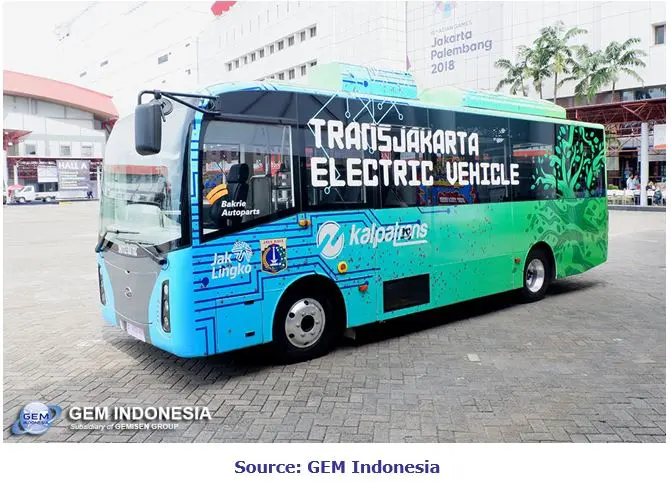

BYD, a global frontrunner in the production of electric vehicles (EVs), has just announced its plans to further venture into the Indonesian market. The company has already established some presence in Indonesia, after having supplied 22 electric buses to bus operator, Transjakarta, and secured a deal with Indonesia’s largest taxi operator, Blue Bird, to supply 80% of its EV fleet in mid-2023. More details on the cars launched on the market are expected to be revealed in the coming week.

With its abundant reserves of nickel and other minerals crucial to the EV industry, Indonesia is striving to carve out a significant role for itself in the global EV market and supply chain. At last year’s Hannover Messe event, Indonesia wooed investments to bolster its EV infrastructure and industry, encompassing areas such as upstream mining, mineral processing, and battery production. Companies from China and Korea, such as Hyundai, LG Chemicals, and Wuling, have been early movers into the Indonesian market. The joint venture between Hyundai and LG to build a lithium battery cell plant in Indonesia is slated to begin production in the first half this year, with an annual capacity of 10 GWh of battery cells, enough for over 150,000 EVs.
This year, we may expect more investments in downstream EV manufacturing and more EV entrants in Indonesia. A new regulation enacted on December 8 extends tax benefits to imported built-up vehicles. Previously, these incentives were only granted to imports of knocked down (KD) vehicles, which are disassembled in parts in the country of origin and then imported and reassembled at the destination country.
However, these benefits are limited to companies that have already invested in EV manufacturing, those planning to add more EV investments, or those intending to make new investments in the sector.
The new regulations also give more time for the companies to fulfill the Next Level of Domestic Component (TKDN) requirements, a key strategic move to grow the domestic EV industry, by extending the 40% minimum local content requirement (LCR) for EVs from 2023 to 2026 and the 60% requirement from 2024 to 2027.
Before the official regulations were enacted in December 2023, Mitsubishi Motors and Neta had planned to commence production by 2024. In late December 2023, Mitsubishi kickstarted the production of the new 2024 Minicab EV, a microcar class electric commercial vehicle, at its PT Mitsubishi Motors Krama Yudha Indonesia (MMKI) factory.
Neta planned to initiate production in Indonesia in the form of Knocked Down starting in the second quarter of 2024, making it the second Chinese car manufacturer, after Wuling, to establish an EV assembly line in Indonesia.
One notable new entrant is VinFast. The relatively low cost and availability of domestic raw materials are among the reasons for establishing manufacturing facilities for EVs and batteries. VinFast has a long-term investment target of up to $1.2 billion for Indonesia. These include the establishment of a CKD factory (complete knock down) factory with a production capacity of between 30,000 and 50,000 cars per year, aiming to start production no later than 2026.
VinFast also has its sights set on India, another key market. The company recently announced plans to build an EV plant in Tamil Nadu, southern India, in an investment worth up to $2 billion. The construction is expected to start this year, creating 3,5000 jobs and producing 150,000 EVs annually upon completion.
Australia: Catalyzing the Regional EV Progress with Indonesia
In a move that further bolsters the regional EV landscape, Indonesia and Australia have signed a Memorandum of Understanding (MoU) to enhance collaboration on battery manufacturing, critical minerals processing, and other aspects of the electric vehicle ecosystem. The MoU, which builds on previous agreement between PM Anthony Albanese and President Joko Widodo, was signed in November 2023 during a visit to Jakarta by Minister Husic and Acting Coordinating Minister for Maritime and Investment Affairs Erick Thohir.
Under the agreement, both countries will collaborate on mapping EV supply chains, conducting joint scientific and research studies, and fostering new business-to-business connections.

